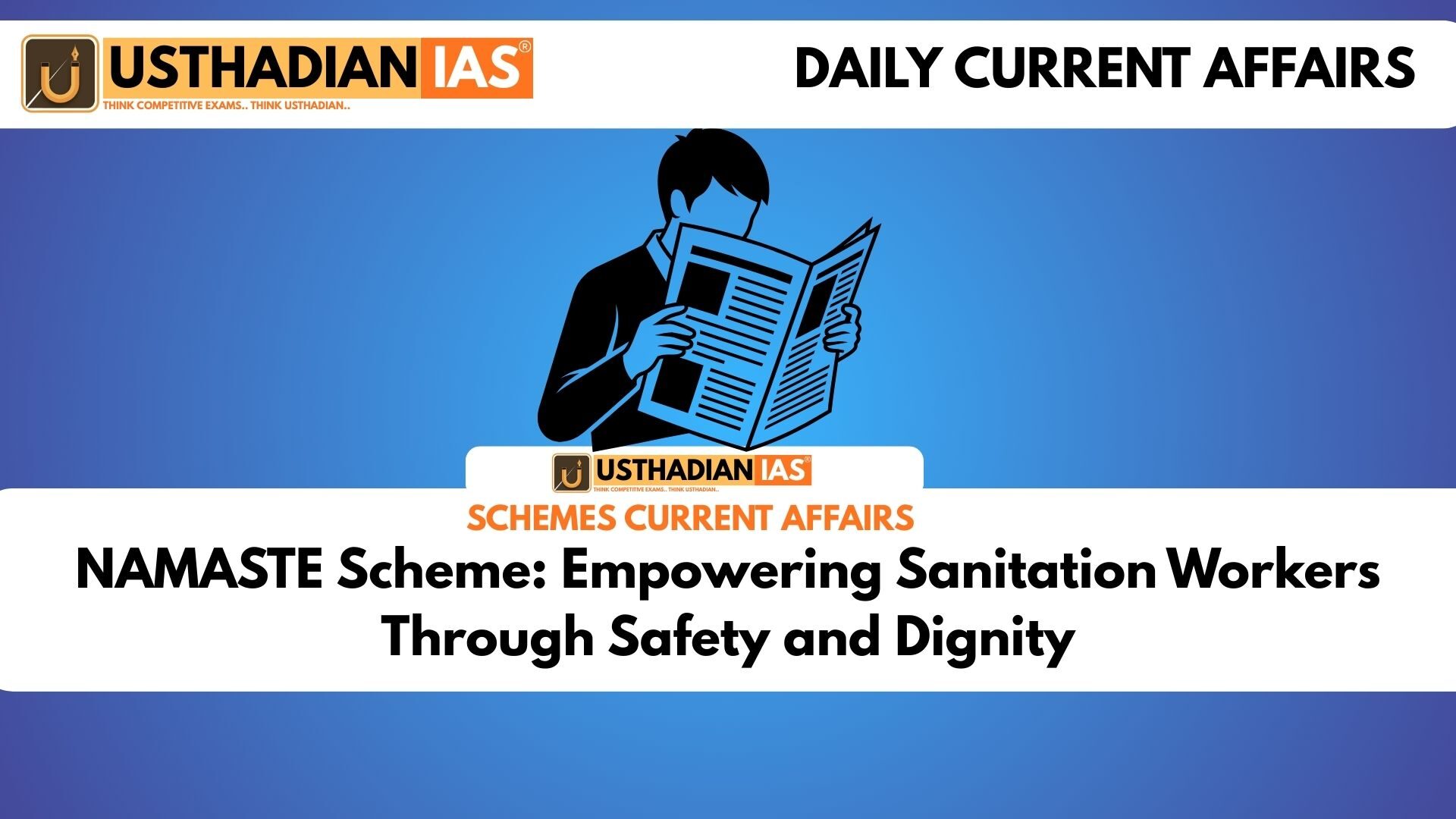Government Push Towards Worker Safety and Dignity
NAMASTE Scheme: Empowering Sanitation Workers Through Safety and Dignity: During a recent visit to Jammu, Union Minister for Social Justice and Empowerment Dr. Virender Kumar distributed Ayushman health cards and PPE kits to Safai Mitras under the NAMASTE scheme. This gesture highlights the government’s commitment to ensuring dignity, safety, and health security for sanitation workers across India. The scheme, launched under the Ministry of Social Justice and Empowerment, aims to modernise sanitation work and eliminate the manual scavenging system.
Objectives Behind NAMASTE
The NAMASTE (National Action for Mechanised Sanitation Ecosystem) scheme’s primary goal is zero fatalities among sanitation workers. It aims to replace manual cleaning with mechanised methods. Another core focus is to avoid direct human contact with faecal matter, which historically led to unsafe and degrading work conditions. By promoting skill development, the scheme transforms workers into trained professionals who can operate modern machines. The inclusion of Self Help Groups (SHGs) adds a community dimension, encouraging workers to engage in sanitation-based entrepreneurship.
Core Features That Empower Workers
The implementation of the NAMASTE scheme begins with the identification of Sewer and Septic Tank Workers (SSWs) in urban areas. These workers are then provided with occupational training, safety gear, and Personal Protective Equipment (PPE). The government also funds Sanitation Response Units (SRUs) to improve emergency response during hazardous cleaning tasks. Additionally, health insurance is provided under Ayushman Bharat, offering free medical coverage up to ₹5 lakh per family per year. This approach ensures both preventive and post-incident support.
Ending Manual Scavenging with Mechanisation
Manual scavenging, the unsafe and dehumanising practice of cleaning human waste manually, has been a long-standing social issue in India. The Prohibition of Employment as Manual Scavengers and their Rehabilitation Act, 2013, marked a turning point in ending this practice. The NAMASTE scheme complements this legal framework by offering alternatives like training in mechanised cleaning techniques and promoting the dignity of labour. With proper training and modern equipment, the scheme aims to ensure that no sanitation worker is forced into unsafe conditions.
Legislative and Policy Support for Workers
The government has also proposed an amendment bill to push for complete mechanisation of sewer cleaning, reducing the risk to human life. In tragic cases where fatalities occur, compensation measures are in place to support affected families. Furthermore, Scheduled Caste sanitation workers receive protection under the Prevention of Atrocities Act, addressing discrimination and exploitation. These combined efforts seek to build a just and inclusive sanitation workforce in the country.
STATIC GK SNAPSHOT
| Topic | Details |
| Full Form of NAMASTE | National Action for Mechanised Sanitation Ecosystem |
| Launched By | Ministry of Social Justice and Empowerment |
| Objective | Zero fatalities, skill development, mechanisation |
| Coverage | Sewer and Septic Tank Workers (SSWs) |
| Health Insurance Benefit | Ayushman Bharat (₹5 lakh per family annually) |
| Legal Support | Manual Scavengers Act 2013, Prevention of Atrocities Act |
| PPE Distribution | Yes, along with training and safety devices |
| Recent Event | Dr. Virender Kumar’s distribution of health cards in Jammu |
| Key Empowerment Feature | Formation of SHGs for sanitation entrepreneurship |








